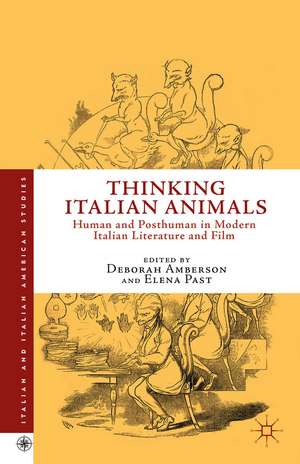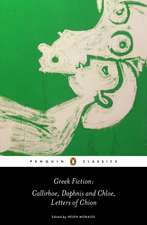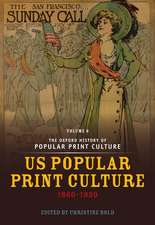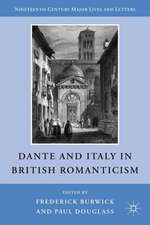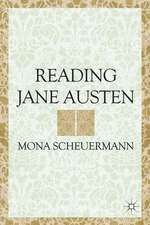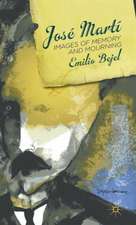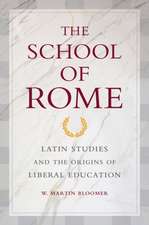Thinking Italian Animals: Human and Posthuman in Modern Italian Literature and Film: Italian and Italian American Studies
Editat de D. Amberson, E. Pasten Limba Engleză Hardback – 18 sep 2014
| Toate formatele și edițiile | Preț | Express |
|---|---|---|
| Paperback (1) | 300.41 lei 3-5 săpt. | |
| Palgrave Macmillan US – 18 sep 2014 | 300.41 lei 3-5 săpt. | |
| Hardback (1) | 305.50 lei 3-5 săpt. | |
| Palgrave Macmillan US – 18 sep 2014 | 305.50 lei 3-5 săpt. |
Din seria Italian and Italian American Studies
- 20%
 Preț: 691.02 lei
Preț: 691.02 lei -
 Preț: 299.96 lei
Preț: 299.96 lei - 18%
 Preț: 564.34 lei
Preț: 564.34 lei - 20%
 Preț: 691.06 lei
Preț: 691.06 lei - 9%
 Preț: 693.79 lei
Preț: 693.79 lei - 9%
 Preț: 763.23 lei
Preț: 763.23 lei - 20%
 Preț: 629.01 lei
Preț: 629.01 lei -
 Preț: 382.95 lei
Preț: 382.95 lei -
 Preț: 389.70 lei
Preț: 389.70 lei -
 Preț: 383.93 lei
Preț: 383.93 lei - 28%
 Preț: 437.24 lei
Preț: 437.24 lei - 24%
 Preț: 460.93 lei
Preț: 460.93 lei -
 Preț: 388.72 lei
Preț: 388.72 lei - 34%
 Preț: 464.99 lei
Preț: 464.99 lei -
 Preț: 386.57 lei
Preț: 386.57 lei -
 Preț: 389.49 lei
Preț: 389.49 lei - 15%
 Preț: 524.22 lei
Preț: 524.22 lei -
 Preț: 387.75 lei
Preț: 387.75 lei -
 Preț: 396.40 lei
Preț: 396.40 lei -
 Preț: 390.84 lei
Preț: 390.84 lei - 5%
 Preț: 714.83 lei
Preț: 714.83 lei -
 Preț: 384.86 lei
Preț: 384.86 lei -
 Preț: 387.75 lei
Preț: 387.75 lei -
 Preț: 389.70 lei
Preț: 389.70 lei - 30%
 Preț: 514.90 lei
Preț: 514.90 lei -
 Preț: 385.84 lei
Preț: 385.84 lei - 30%
 Preț: 510.10 lei
Preț: 510.10 lei -
 Preț: 387.75 lei
Preț: 387.75 lei - 27%
 Preț: 438.76 lei
Preț: 438.76 lei -
 Preț: 388.72 lei
Preț: 388.72 lei -
 Preț: 389.49 lei
Preț: 389.49 lei - 18%
 Preț: 733.46 lei
Preț: 733.46 lei - 24%
 Preț: 461.18 lei
Preț: 461.18 lei -
 Preț: 384.86 lei
Preț: 384.86 lei -
 Preț: 263.83 lei
Preț: 263.83 lei -
 Preț: 386.81 lei
Preț: 386.81 lei - 15%
 Preț: 638.43 lei
Preț: 638.43 lei - 15%
 Preț: 595.07 lei
Preț: 595.07 lei -
 Preț: 390.63 lei
Preț: 390.63 lei -
 Preț: 383.93 lei
Preț: 383.93 lei -
 Preț: 392.60 lei
Preț: 392.60 lei -
 Preț: 387.75 lei
Preț: 387.75 lei -
 Preț: 386.81 lei
Preț: 386.81 lei -
 Preț: 388.72 lei
Preț: 388.72 lei
Preț: 305.50 lei
Nou
Puncte Express: 458
Preț estimativ în valută:
58.46€ • 63.48$ • 49.11£
58.46€ • 63.48$ • 49.11£
Carte disponibilă
Livrare economică 01-15 aprilie
Preluare comenzi: 021 569.72.76
Specificații
ISBN-13: 9781137454751
ISBN-10: 113745475X
Pagini: 263
Ilustrații: XXXVI, 263 p.
Dimensiuni: 140 x 216 x 23 mm
Greutate: 0.45 kg
Ediția:2014
Editura: Palgrave Macmillan US
Colecția Palgrave Macmillan
Seria Italian and Italian American Studies
Locul publicării:New York, United States
ISBN-10: 113745475X
Pagini: 263
Ilustrații: XXXVI, 263 p.
Dimensiuni: 140 x 216 x 23 mm
Greutate: 0.45 kg
Ediția:2014
Editura: Palgrave Macmillan US
Colecția Palgrave Macmillan
Seria Italian and Italian American Studies
Locul publicării:New York, United States
Cuprins
Preface: Mimesis: The Heterospecific as Ontopoetic Epiphany; Roberto Marchesini Introduction: Thinking Italian Animals; Deborah Amberson and Elena Past PART I: ONTOLOGIES AND THRESHOLDS 1. Confronting the Specter of Animality: Tozzi and the Uncanny Animal of Modernism; Deborah Amberson 2. Cesare Pavese, Posthumanism, and the Maternal Symbolic; Elizabeth Leake 3. Montale's Animals: Rhetorical Props or Metaphysical Kin?; Gregory Pell 4. The Word Made Animal Flesh: Tommaso Landolfi's Bestiary; Simone Castaldi 5. Animal Metaphors, Biopolitics, and the Animal Question: Mario Luzi, Giorgio Agamben, and the Human-Animal Divide; Matteo Gilebbi PART II: BIOPOLITICS AND HISTORICAL CRISIS 6. Creatureliness and Posthumanism in Liliana Cavani's The Night Porter and Pier Paolo Pasolini's Salò; Alexandra Hills 7. Elsa Morante at the Biopolitical Turn: Becoming-Woman, Becoming-Animal, Becoming-Imperceptible; Giuseppina Mecchia 8. Foreshadowing the Posthuman: Hybridization, Apocalypse, and Renewal in Paolo Volponi; Daniele Fioretti 9. The Post-Apocalyptic Cookbook: Animality, Posthumanism, and Meat in Laura Pugno and Wu Ming; Valentina Fulginiti PART III: ECOLOGIES AND HYBRIDIZATIONS 10. The Monstrous Meal: Flesh Consumption and Resistance in the European Gothic; David Del Principe 11. Contemporaneità and Ecological Thinking in Carlo Levi's Writing; Giovanna Faleschini Lerner 12. Hybriditales: Posthumanizing Calvino; Serenella Iovino 13. (Re)membering Kinship: Living with Goats in The Wind Blows Round and Le quattro volte; Elena Past
Recenzii
"Animals and the Posthuman in Italian Literature and Film is an elegant and musing collection on what it means to be alive and thinking today. The volume contains a wonderful preface by Italian philosopher, Roberto Marchesini , who sets out the stakes of the work beautifully. Indeed, it has been a long time since I've come across such a powerful combination of erudition, cutting-edge readings of continential philosophy, and, though this may seem surprising given the title, humanity." - Timothy Campbell, Professor of Italian Studies and Chair of Romance Studies, Cornell University, USA
Notă biografică
Roberto Marchesini, Scuola d'interazione uomo animale, ItalyElizabeth Leake, Columbia University, USAGregory Pell, Hofstra University, USASimone Castaldi, Hofstra University, USAMatteo Gilebbi, Duke University, USAAlexandra Hills, University College London, UKGiuseppina Mecchia, University of Pittsburgh, USADaniele Fioretti, University of Miami, Ohio, USAValentina Fulginiti, University of Toronto, CanadaDavid Del Principe, Montclair State University, USAGiovanna Faleschini Lerner, Franklin and Marshall College, USASerenella Iovino, University of Turin, Italy
